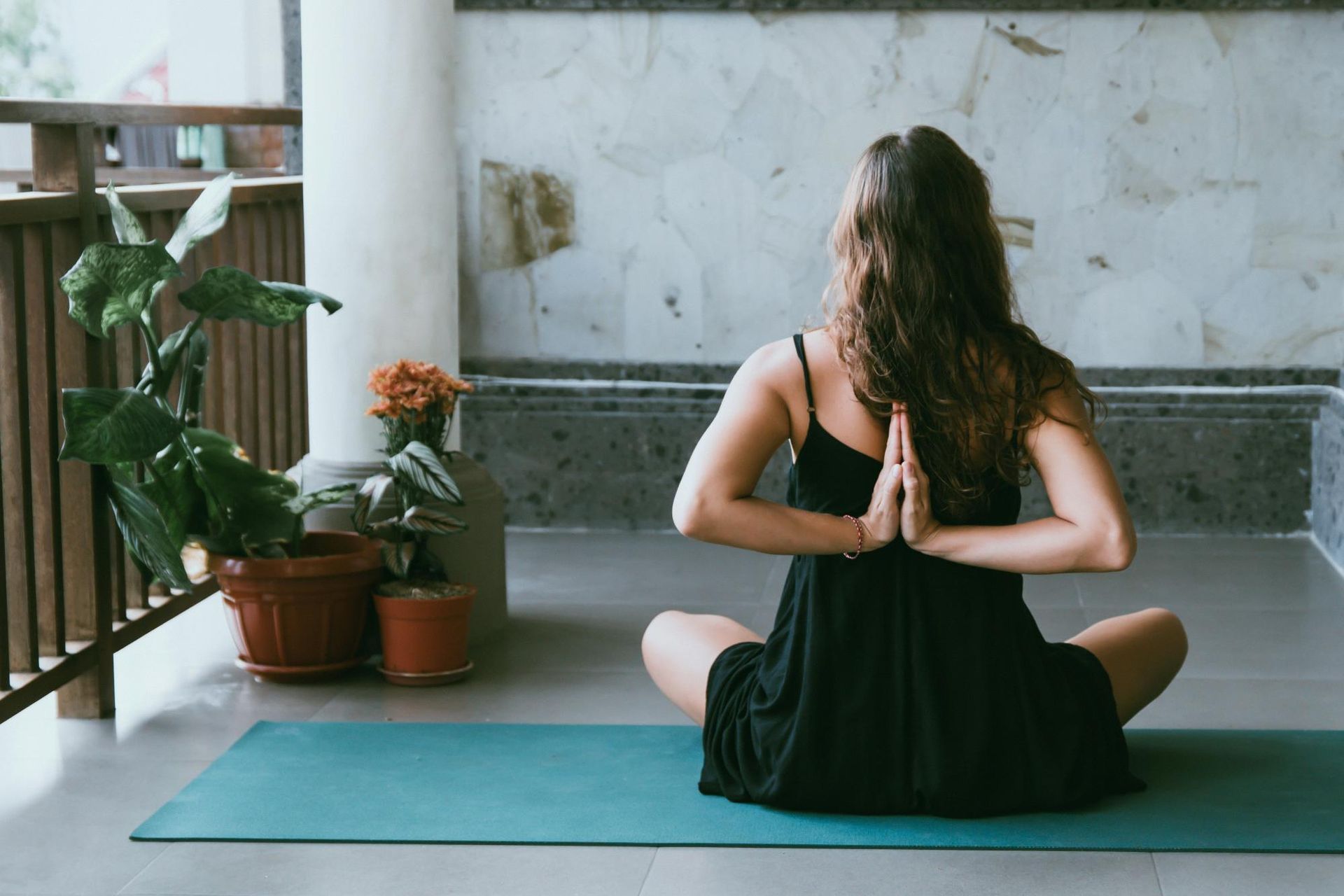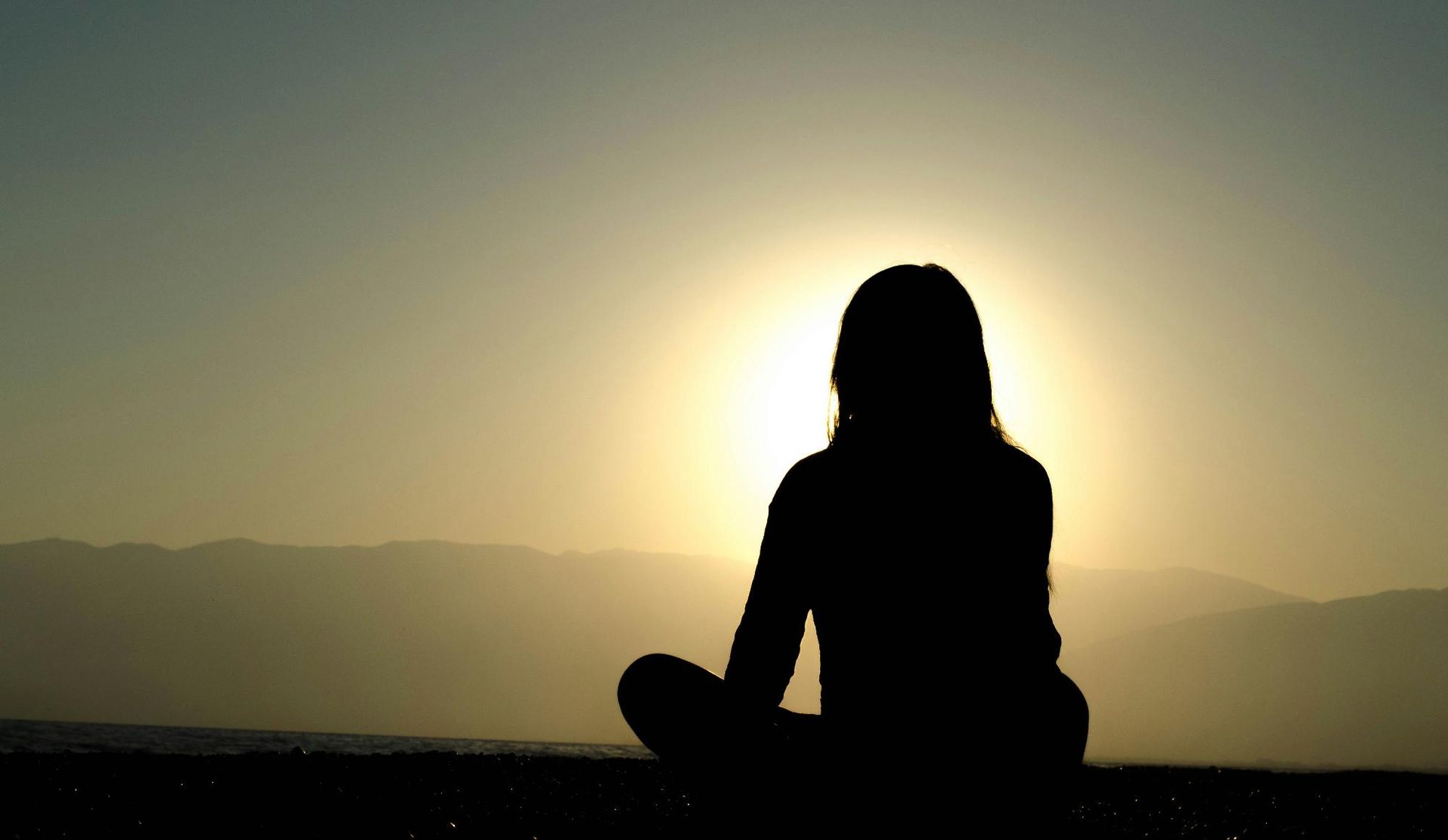Balancing Creativity and Well-Being at Your Writing Retreat
Writers often experience shortness of breath as they immerse themselves in crafting fiction during intense retreats. While creativity serves as a powerful tool, it's crucial to maintain energy and well-being throughout the process. Balancing the pursuit of literary excellence with self-care enhances productivity and deepens the wells of knowledge and inspiration.
This article will explore practical strategies to nurture your creative spirit and physical health during writing retreats. Discover how to create an environment that fosters your best work while prioritizing your overall wellness.
KEY TAKEAWAYS
- Regular breaks and mindfulness techniques help writers stay focused and reduce stress.
- A well-organized workspace with ergonomic furniture supports physical health during writing sessions.
- Balanced nutrition and hydration are essential for maintaining energy and creativity.
- Physical activity and nature exploration enhance productivity and well-being during retreats.
- Connecting with fellow writers provides support and inspiration throughout the creative process.

Prioritizing Mental Health During Intense Writing Sessions
Mental health is crucial in the creative process, especially during intense retreat writing sessions. A professor of neuroscience once said, "The brain processes information best when it's well-cared for." This applies to writers hosting their mental wellness while crafting their stories. By prioritizing mental health, authors can avoid creative burnout, reduce stress, and maintain a steady flow of ideas. Balancing the sugar rush of inspiration with grounding practices that nourish the mind and body is essential. The following strategies can help writers stay focused, productive, and emotionally balanced during their retreat experience.
Schedule Regular Breaks to Refresh the Mind and Body
Taking regular breaks helps writers stay healthy and mentally sharp during intense writing sessions. Stepping away from the chair every hour or two allows the brain to process information and improves memory retention. These short pauses give the mind space to recharge and return to writing with renewed focus.
Writers can use break time to stretch, walk, or do light exercises to boost circulation and energy levels. Changing physical environments, even briefly, stimulates creativity and prevents mental fatigue. Regular breaks also reduce eye strain and muscle tension from prolonged sitting, supporting overall well-being during the retreat.
Practice Mindfulness to Stay Grounded and Focused
Mindfulness techniques help writers stay present and focused during intense writing sessions. Research from universities shows that practicing mindfulness reduces stress and improves cognitive function. Authors can clear their minds and approach their work with renewed motivation by incorporating short meditation breaks.
Simple mindfulness exercises like deep breathing or body scans can ground writers in the present moment. This mental reset allows creative ideas to flow more freely, enhancing the writing process. Many successful authors in the publishing industry credit mindfulness practices for boosting their productivity and creativity.
Use Journaling to Process Thoughts and Reduce Stress
Journaling offers writers a powerful tool to process thoughts and reduce stress during intense writing sessions. Putting pen to paper allows authors to explore their ideas, emotions, and challenges in a private, judgment-free space. This practice helps clear the mind, making room for fresh creativity and reducing anxiety about the writing process.
Writing retreats often provide a supportive community for learning and growth. Experts recommend incorporating music or ambient sounds to enhance relaxation and focus while journaling. This combination of journaling and soothing background noise creates a calming environment, helping writers maintain their mental well-being throughout their retreat experience.
Incorporate Relaxation Techniques for Creative Blocks
Writers often encounter creative blocks during intense writing sessions, but relaxation techniques can help overcome these obstacles. For example, taking a short break to enjoy a healthy snack, like a handful of nuts, can boost energy and improve mood. Health tips from experts suggest that combining physical relaxation with mental exercises, such as visualization or deep breathing, can stimulate creativity and reduce stress.
Artificial intelligence tools now offer personalized relaxation techniques tailored to individual writers' needs. These AI-powered apps can suggest guided meditations and breathing exercises or even curate a menu of calming activities based on a writer's current mood and energy levels. By incorporating these relaxation methods, authors can maintain their mental well-being and keep their creative juices flowing throughout their writing retreat.
Creating a Productive Yet Soothing Workspace
A well-designed workspace at a writing retreat can significantly impact an author's productivity and well-being. By carefully organizing the space, writers can create an environment that nurtures creativity and promotes calm. Ergonomic furniture supports physical health, reducing strain on the body during extended writing sessions.
Incorporating natural elements like plants and sunlight can lower blood pressure and regulate circadian rhythms, improving overall health. Whether working at a desk or in a cozy nook, the proper setup can transform a retreat space into a sanctuary for creative expression. Many retreat centers now offer apps to help writers customize their workspace, ensuring they have everything they need to focus on their craft while maintaining their physical and mental health.
Organize Your Space to Enhance Creativity and Calm
Organizing a writing space at retreats helps authors reduce stress and boost creativity. A clutter-free area allows the mind to focus on writing tasks without distractions. Writers can create a calm atmosphere by adding personal touches like favorite books or inspirational quotes, promoting a positive mental health environment.
A well-organized space also supports a healthy lifestyle during intense writing sessions. Keeping nutritious snacks within reach encourages better eating habits and maintains energy levels. Designating specific areas for breaks and relaxation within the workspace helps writers manage their health and recharge between writing sprints.
Choose Ergonomic Furniture to Support Physical Well-Being
Selecting ergonomic furniture supports physical well-being during writing retreats, allowing authors to focus on creativity without discomfort. Adjustable chairs and desks prevent strain on the back, neck, and wrists, reducing the risk of repetitive stress injuries. The Mayo Clinic recommends ergonomic setups to maintain proper posture and circulation, especially during long writing sessions.
Incorporating ergonomic elements into the workspace promotes overall health, positively impacts meal choices, and reduces cravings for junk food. Higher education institutions often use ergonomic furniture to enhance student comfort and productivity, a practice that translates well to writing retreats. By prioritizing physical comfort, writers can maintain their energy and focus throughout the day.
- Choose an adjustable chair with lumbar support
- Use a desk at the correct height for typing
- Position the computer screen at eye level
- Utilize a keyboard tray or ergonomic keyboard
- Consider a standing desk option for a variety
Implement Greenery and Natural Light for a Serene Environment
Adding greenery and natural light to a writing retreat workspace creates a serene environment that supports creative writing and overall well-being. Plants purify the air and reduce stress, while natural light through glass windows regulates circadian rhythms and helps prevent headaches. This combination fosters a calm atmosphere conducive to producing quality work.
Writers can place small potted plants on their desks or larger ones in corners to bring nature indoors. Positioning the workspace near windows allows ample natural light, reducing eye strain and muscle tension. Many retreat centers offer tips via email address sign-ups for those interested in learning more about creating an ideal writing environment.

Balancing Nutrition for Optimal Creativity and Energy
A well-balanced diet fuels both the body and mind during intense writing sessions. Writers at retreats often find themselves between the desire to stay in bed and the need to combat fatigue through proper nutrition. Authors can maintain their energy and focus by planning brain-boosting meals and snacks, staying hydrated with plenty of water, and avoiding heavy, high-cholesterol foods. The kitchen becomes a crucial ally in the creative process, offering nourishment that supports sustained concentration and imaginative thinking. Thoughtful meal planning enhances productivity and contributes to overall well-being, allowing writers to maximize their retreat experience.
Plan Healthy, Brain-Boosting Meals and Snacks
Planning brain-boosting meals and snacks keeps writers energized while crafting their manuscripts. A balanced diet rich in nutrients supports mental clarity and creativity during long writing sessions. Writers can prepare healthy options in advance, ensuring nourishing food is readily available throughout the hour.
Choosing foods that promote cardiovascular health also benefits the writing profession. A diet low in saturated fats and high in omega-3 fatty acids supports brain function, helping writers focus on their drafts. By prioritizing nutritious meals, authors reduce their risk of cardiovascular disease while maintaining peak creative performance.
Stay Hydrated to Maintain Energy Levels and Concentration
Staying hydrated helps writers maintain energy levels and concentration during intense writing sessions. Keeping a water bottle near the pen encourages regular sipping, preventing dehydration-related health problems that can hinder the creative process. Writers prioritizing hydration often report a better overall retreat experience, with improved focus and stamina for crafting their literature.
Experts recommend drinking water throughout the day to support brain function and creativity. Some writers find flavoring water with fresh fruit or herbs more appealing, increasing their likelihood of staying well-hydrated. Authors can reply to their muse with clarity and vigor by maintaining proper hydration and producing their best work during the retreat.
Avoid Heavy Meals That Can Lead to Sluggishness
Heavy meals can slow down writers during book marketing sessions at retreats, leading to sluggishness and reduced productivity. To avoid this, authors should opt for lighter, nutrient-dense foods that provide sustained energy without weighing them down. Taking short breaks to enjoy a small piece of dark chocolate or light a scented candle can help refresh the mind without resorting to large, heavy meals.
Writers should pay attention to signs and symptoms of overeating, such as feeling drowsy or experiencing difficulty concentrating after meals. By choosing smaller, more frequent portions throughout the day, authors can maintain steady energy levels and avoid the creativity-dampening effects of heavy meals. This approach allows writers to stay focused on their craft and maximize their retreat experience.

The Role of Physical Activity in Enhancing Writing Productivity
Physical activity enhances writing productivity during retreats, offering a balanced approach to creativity and well-being. Incorporating short, energizing workouts into the day can boost energy levels and mental clarity, making investing in a book writing retreat even more worthwhile. Yoga and stretching exercises help alleviate discomfort from prolonged sitting, allowing writers to focus on their craft without physical distractions. Exploring nature inspires creativity and promotes well-being, providing a refreshing break from intense writing sessions. By combining these activities with healthy habits like snacking on fresh fruit, writers can maintain high productivity levels while nurturing their physical and mental health throughout the retreat experience.
Incorporate Short, Energizing Workouts Into Your Day
Writers can boost their productivity by incorporating short, energizing workouts into daily routines. These quick exercises help combat back pain from prolonged sitting and increase blood flow to the brain, enhancing creativity and focus. Solo writers often find that a brief workout between writing sessions refreshes their minds and bodies, allowing them to return to work with renewed energy.
Many authors listen to writing-related podcasts while engaging in light exercise, combining physical activity with professional development. This multitasking approach improves physical health and helps writers connect to their craft. Additionally, regular exercise promotes better sleep quality, ensuring writers wake up refreshed and ready to tackle their next chapter.
Use Yoga or Stretching to Alleviate Sitting Discomfort
Yoga and stretching offer writers effective ways to alleviate sitting discomfort during retreats. These gentle exercises help combat insomnia and promote healthy blood flow, allowing authors to maintain focus on their language and storytelling. Simple stretches can be performed at the desk, quickly relieving muscle tension and stiffness.
Retreat organizers often share tips for incorporating yoga or stretching into writing routines. These exercises ease physical discomfort and serve as mental breaks, refreshing the mind for continued creativity. Regular stretching or yoga practice can improve overall health, making it easier for writers to maintain productivity throughout the retreat.
Explore Nature to Inspire Creativity and Well-Being
Exploring nature during writing retreats inspires creativity and promotes well-being. Writers who take breaks to walk in natural settings often experience reduced eye strain and find new ideas for their work. Spending time outdoors supports a healthy diet by encouraging physical activity and reducing stress-related snacking.
Nature walks provide opportunities for brainstorming and reflection, enhancing the writing process. Authors can use these outings to mentally review their work, similar to a peer review session. Reading in natural settings can also refresh the mind, offering a change of scenery that stimulates new perspectives on the written material.

Managing Screen Time to Protect Your Eyes and Focus
Managing screen time during writing retreats balances creativity with well-being. Writers face unique pressure to produce while staring at screens for hours. This can strain the eyes and disrupt sleep patterns, impacting health and writing quality. Authors can protect their vision and maintain focus by following simple rules, setting boundaries, and using innovative tools. Just as a balanced diet includes vegetables for physical health, a balanced writing routine incorporates screen management for mental clarity. This human-centered approach to technology use during retreats helps writers stay productive without sacrificing their well-being.
Follow the 20-20-20 Rule to Reduce Eye Strain
The 20-20-20 rule helps writers reduce eye strain during intense writing sprints. This simple tip recommends looking at something 20 feet away for 20 seconds every 20 minutes. Writers can combine this practice with brief standing desk sessions to alleviate wrist discomfort and maintain a healthy weight.
Implementing the 20-20-20 rule during writing retreats promotes eye health and overall well-being. Authors can set reminders on their devices or use specialized apps to track their screen time and prompt regular breaks. This practice protects vision and provides mental refreshment, potentially boosting creativity and productivity.
- Set a timer for 20-minute intervals
- Look away from the screen at a distant object
- Focus on the object for 20 seconds
- Return to writing with refreshed eyes
- Repeat throughout the writing session
Set Boundaries for Electronic Use to Encourage Rest
Setting boundaries for electronic use encourages rest and promotes well-being during writing retreats. Authors can establish technology-free zones or periods, allowing their minds to recharge without constant digital stimulation. This practice helps writers avoid the adverse health effects of excessive screen time, such as increased cancer risk and disrupted sleep patterns.
Writers can set a goal to limit device usage outside of writing hours, focusing instead on restful activities like reading or enjoying a calming drink. By creating a balance between digital and analog experiences, authors can maintain their creative flow while protecting their health. Even in technology-driven environments like those in Texas, implementing these boundaries can lead to a more productive and rejuvenating retreat experience.
Employ Blue Light Filters on Devices to Improve Sleep Quality
Blue light filters on devices help writers improve sleep quality during retreats. These filters reduce the amount of blue light emitted by computer and laptop screens, which can disrupt natural sleep patterns. Using these filters allows authors to work late into the night without risking insomnia or eye strain.
Implementing blue light filters also helps prevent neck and shoulder pain associated with poor posture while writing. As writers become more comfortable looking at their screens, they're less likely to hunch over their devices, reducing the risk of musculoskeletal issues. This simple technology can help authors maintain their health and productivity throughout their retreat, potentially lowering their risk of developing chronic diseases related to prolonged screen use.

The Importance of Sleep in the Creative Process
Sleep is vital in the creative process, especially during writing retreats. A well-rested mind fosters creativity, enhances editing skills, and improves productivity. Writers prioritizing sleep often find themselves better equipped to tackle complex poetry and prose. Healthy sleep habits support mental clarity and physical well-being, complementing a balanced diet and education about self-care. Authors can maximize their creative output while maintaining their health during intense writing periods by focusing on relaxing bedtime routines, consistent sleep schedules, and optimized sleep environments.
Establish a Relaxing Bedtime Routine for Better Sleep
Writers can establish a relaxing bedtime routine to improve sleep quality during retreats. A calming ritual before bed, such as sipping herbal tea or reading a book unrelated to their writing project, helps signal the body that it's time to wind down. This routine can also include brief marketing tasks or reviewing feedback, allowing writers to clear their minds of work-related thoughts before sleep.
A consistent bedtime routine supports better sleep habits, enhancing creativity and productivity. Writers might find that light cooking or preparing a simple snack before bed helps them relax. By prioritizing sleep hygiene, authors can wake refreshed and ready to tackle their writing goals with renewed energy.
A writer's relaxing bedtime routine might include:
- Drinking caffeine-free herbal tea
- Reading a non-work-related book
- Gentle stretching or yoga
- Writing in a gratitude journal
- Listening to calming music or nature sounds
- Taking a warm bath or shower
- Practicing deep breathing or meditation
Keep a Consistent Sleep Schedule to Aid Mental Clarity
Maintaining a consistent sleep schedule aids mental clarity during writing retreats, helping authors identify fresh ideas and tackle revisions with vigor. By going to bed and waking up at the same time each day, writers regulate their body's internal clock, improving the quality of their rest. This routine supports creative thinking and enhances focus, allowing writers to resist the temptation of late-night social media scrolling that can disrupt sleep patterns.
A steady sleep schedule also helps writers maintain their energy levels throughout the retreat, treating it more like a productive vacation than a grueling work session. Consistent sleep promotes healthy blood flow to the brain, supporting cognitive function and emotional stability. This balance lets authors approach their writing with renewed enthusiasm daily, leading to more effective and enjoyable creative sessions.
Optimize Your Sleep Environment for Quality Rest
Writers can optimize their sleep environment for quality rest by focusing on critical factors that promote relaxation. Darkness stimulates melatonin production, so blackout curtains or an eye mask can enhance sleep quality. Science shows that maintaining a cool room temperature, around 65°F (18°C), supports better sleep.
Creating a quiet space is another crucial element for restful sleep. Writers can use white noise machines or earplugs to achieve silence, blocking out disruptive sounds. Comfortable clothing made from breathable fabrics also plays a role in regulating body temperature and promoting uninterrupted sleep. These simple adjustments can significantly improve sleep quality, giving writers a valid reason to prioritize their sleep environment during retreats.
Critical elements for optimizing a sleep environment:
- Blackout curtains or eye masks for darkness
- Cool room temperature (around 65°F or 18°C)
- White noise machine or earplugs for silence
- Comfortable, breathable clothing
- Supportive mattresses and pillows
- Clean, clutter-free bedroom space

Connecting With Fellow Writers for Support and Inspiration
Connecting with fellow retreat writers offers invaluable support and inspiration, fostering creativity and well-being. Authors can share experiences using tools like treadmill desks to stay active while writing, exchange tips on crafting outlines for their memoirs, and offer mentorship to one another. These interactions create a nurturing environment where writers discuss their craft and wellness journeys, including nutrition strategies fueling their creativity. By organizing check-ins, sharing problem-solving techniques, and creating safe spaces for vulnerability, writers build a supportive community that enhances their retreat experience. This collaborative atmosphere helps authors navigate the challenges of intense writing periods while maintaining their physical and mental health.
Organize Daily Check-Ins or Group Discussions
Daily check-ins and group discussions allow writers to share their progress and challenges, fostering a supportive community during retreats. These gatherings allow authors to discuss various aspects of their writing journey, from overcoming creative blocks to managing physical discomfort like back pain through meditation or using a treadmill desk. Writers can also use these sessions to exchange tips on building their newsletter subscriber lists or share insights from research trips to places like New York City.
Organizing regular group discussions creates a structured environment for writers to connect, brainstorm, and offer mutual encouragement. These meetings can be a platform for sharing wellness techniques that complement the writing process, such as mindfulness practices or ergonomic workspace setups. By fostering open communication, writers can combat feelings of isolation and maintain a healthy balance between productivity and self-care throughout their retreat experience.
Share Strategies for Overcoming Creative Hurdles
Writers benefit from sharing strategies to overcome creative hurdles during retreats. Discussing techniques like freewriting or changing writing locations can spark new ideas and break writer's block. These exchanges help authors develop habits that support their creativity while avoiding unhealthy coping mechanisms that could lead to obesity or other health issues.
Collaborative problem-solving sessions allow writers to learn from each other's experiences and adapt successful strategies to their work. By openly discussing challenges and solutions, authors create a supportive environment that nurtures their writing skills and overall well-being. This shared approach to tackling creative obstacles helps maintain a positive and productive atmosphere throughout the retreat.
Create a Safe Space for Vulnerability and Wellness Talks
Creating a safe space for vulnerability and wellness talks allows writers to address personal challenges that may affect their creativity. Authors can share experiences with stress management techniques, discuss healthy eating habits, or open up about emotional obstacles they face during the writing process. This openness fosters a supportive environment where writers feel comfortable seeking help and advice from their peers.
Establishing ground rules for these discussions ensures all participants feel respected and heard. Writers can take turns leading wellness sessions and sharing their expertise on mindfulness practices or time management strategies. By prioritizing emotional and physical well-being, authors create a holistic retreat experience that nurtures creativity and personal growth.

Integrating Mindfulness and Meditation Into Your Routine
Integrating mindfulness and meditation into a writing retreat routine can significantly enhance creativity and well-being. These practices offer writers powerful tools to cultivate mental clarity, manage stress, and maintain a positive outlook throughout their creative process. By starting each day with meditation, using breathing techniques to navigate frustrations, and practicing gratitude, authors can create a balanced and nurturing environment for their work. These mindfulness practices support the writing process and contribute to overall health and happiness during intense creative periods. As writers incorporate these techniques into their daily routines, they often find themselves better equipped to handle the challenges and joys of the writing journey.
Start the Day With Meditation for a Clear Mindset
Starting the day with meditation helps writers establish a clear mindset for their creative work. This practice allows authors to center themselves, reduce anxiety, and sharpen their focus before diving into their writing tasks. By dedicating even a few minutes to quiet reflection each morning, writers set a positive tone for their day at the retreat.
Morning meditation also helps writers connect with their inner creativity and intuition. This peaceful start to the day can spark new ideas, overcome writer's block, and enhance overall productivity. Writers who incorporate this practice often report feeling more balanced and better equipped to handle the challenges during intense writing sessions.
Use Breathing Techniques to Navigate Writing Frustrations
Writers can use breathing techniques to navigate frustrations during intense writing sessions. Deep, controlled breaths help calm the mind and reduce stress when facing challenging plot points or writer's block. This simple practice allows authors to refocus their energy and approach their work with renewed clarity.
Specific breathing exercises, such as the 4-7-8 technique, can quickly alleviate tension and promote a sense of calm. By incorporating these methods into their writing routine, authors maintain their emotional balance and preserve their creative flow. Regular breathing techniques support overall well-being, enabling writers to sustain their productivity throughout the retreat.
Practice Gratitude to Cultivate a Positive Outlook
Practicing gratitude helps writers cultivate a positive outlook during their retreat experience. By taking a few moments each day to reflect on what they're thankful for, authors can shift their focus from challenges to opportunities. This simple appreciation can boost mood, reduce stress, and foster a more creative mindset.
Writers can incorporate gratitude into their routine by keeping a journal, sharing appreciation with fellow retreat participants, or simply pausing to acknowledge small victories in their writing process. This practice enhances well-being and nurtures resilience, allowing authors to navigate the ups and downs of their creative journey with greater ease.

Exploring Creative Outlets Beyond Writing
Exploring creative outlets beyond writing during retreats offers authors a refreshing break from their primary focus while still nurturing their artistic spirit. By engaging in activities like art, music, or unrelated hobbies, writers can stimulate different areas of their brain, enhancing creativity and problem-solving skills in their writing. These diverse experiences often inspire new ideas and perspectives that can be applied to their literary work. Allowing for playful experimentation without judgment further encourages writers to step outside their comfort zones, fostering a sense of freedom and joy that can reinvigorate their writing practice. This holistic approach to creativity supports mental well-being and helps prevent burnout, ensuring authors maintain a healthy balance throughout their retreat experience.
Engage in Art or Music to Fuel Your Creativity
Engaging in art or music during writing retreats fuels creativity by activating different brain parts. Writers who sketch, paint, or play an instrument tap into alternative modes of expression, often unlocking new ideas for their literary work. This cross-pollination of creative activities stimulates fresh perspectives and innovative thinking.
Music, in particular, can evoke emotions and inspire vivid imagery that writers can channel into their stories. Creating or listening to melodies provides a mental break from intense writing sessions, allowing the subconscious mind to process ideas. By incorporating these artistic pursuits, authors enrich their creativity well and maintain a balanced approach to their craft.
Take Up a Hobby Unrelated to Writing for Mental Diversity
During retreats, taking up a hobby unrelated to writing offers mental diversity and refreshment. Activities like gardening, knitting, or woodworking engage different parts of the brain, providing a break from intense writing sessions. This mental shift can lead to renewed creativity and problem-solving skills when authors return to their manuscripts.
Hobbies outside of writing also help authors maintain a balanced perspective on their work. By developing skills in other areas, writers can build confidence and reduce stress associated with their primary craft. These diverse experiences often spark unexpected connections and ideas that enrich their writing process.
Allow for Playful Experimentation Without Judgment
Allowing for playful experimentation without judgment frees writers to explore new ideas and techniques during retreats. This approach encourages authors to step outside their comfort zones, trying unconventional writing styles or genres without fear of criticism. By embracing a spirit of curiosity and openness, writers can discover fresh ways to express themselves and enhance their craft.
Playful experimentation also helps writers reconnect with the joy of creating, reducing stress, and preventing burnout. Lighthearted writing exercises or collaborative storytelling games can reignite the passion for the written word. This mindset of exploration and fun supports overall well-being, fostering a positive and energizing retreat experience.

Establishing a Healthy Balance Between Work and Play
Establishing a healthy balance between work and play is crucial for writers attending retreats. While the primary goal is to progress on their literary projects, maintaining well-being through leisure activities is equally important. By setting clear boundaries, allocating time for relaxation and social interaction, and recognizing signs of overwork, authors can create a sustainable and productive retreat experience. This balanced approach prevents burnout and enhances creativity, allowing writers to return to their work with renewed energy and fresh perspectives. Striking the proper equilibrium between focused writing sessions and enjoyable downtime ensures that authors make the most of their retreat while safeguarding their physical and mental health.
Set Clear Boundaries to Avoid Burnout
Setting clear boundaries helps writers avoid burnout during intense writing retreats. Authors can establish and stick to specific work hours, ensuring they have time for rest and rejuvenation. This structure allows for focused writing sessions while preventing overwork and exhaustion.
Writers can also set boundaries around their workspace, creating a dedicated area for writing separate from relaxation zones. By physically and mentally distinguishing between work and leisure spaces, authors maintain a healthier balance and reduce the risk of burnout throughout their retreat experience.
Allocate Time for Leisure and Social Activities
Allocating time for leisure and social activities during writing retreats helps authors maintain a healthy work-life balance. Writers can schedule regular breaks for relaxation, exercise, or socializing with fellow retreat participants. These periods of downtime allow the mind to recharge and often lead to fresh insights when returning to writing tasks.
Engaging in non-writing activities also fosters community and supports overall well-being. Authors might organize group outings, shared meals, or casual gatherings to connect with others and gain new perspectives. This balance between solitary writing and social interaction creates a more enriching retreat experience:
- Schedule daily breaks for relaxation or exercise
- Plan group activities or outings
- Share meals with fellow writers
- Participate in casual social gatherings
- Engage in non-writing hobbies or interests
Recognize the Signs of Overworking and Take Action
Writers need to recognize signs of overworking during retreats to maintain their health and creativity. Common indicators include persistent fatigue, difficulty concentrating, and irritability. When these symptoms appear, authors should immediately prevent burnout and preserve their well-being.
Taking action against overwork involves stepping away from writing tasks and engaging in restorative activities. Writers can practice relaxation techniques, enjoy nature walks, or connect with fellow retreat participants. These breaks help reset the mind and body, allowing authors to return to their work with renewed energy and focus.
Conclusion
Writing retreats offer authors unique opportunities to focus on their craft, but balancing creativity with well-being is crucial for success. By prioritizing mental health, maintaining a productive workspace, and nourishing both body and mind, writers can enhance their creative output while safeguarding their overall health. Incorporating physical activity, managing screen time, and connecting with fellow writers further support a holistic retreat experience. Ultimately, striking a harmonious balance between work and play ensures that authors produce their best writing and return from their retreat refreshed and inspired.
© 2024 All Rights Reserved | Keira Brinton
All Rights Reserved | Keira Brinton | Website Design by Tally Creative














